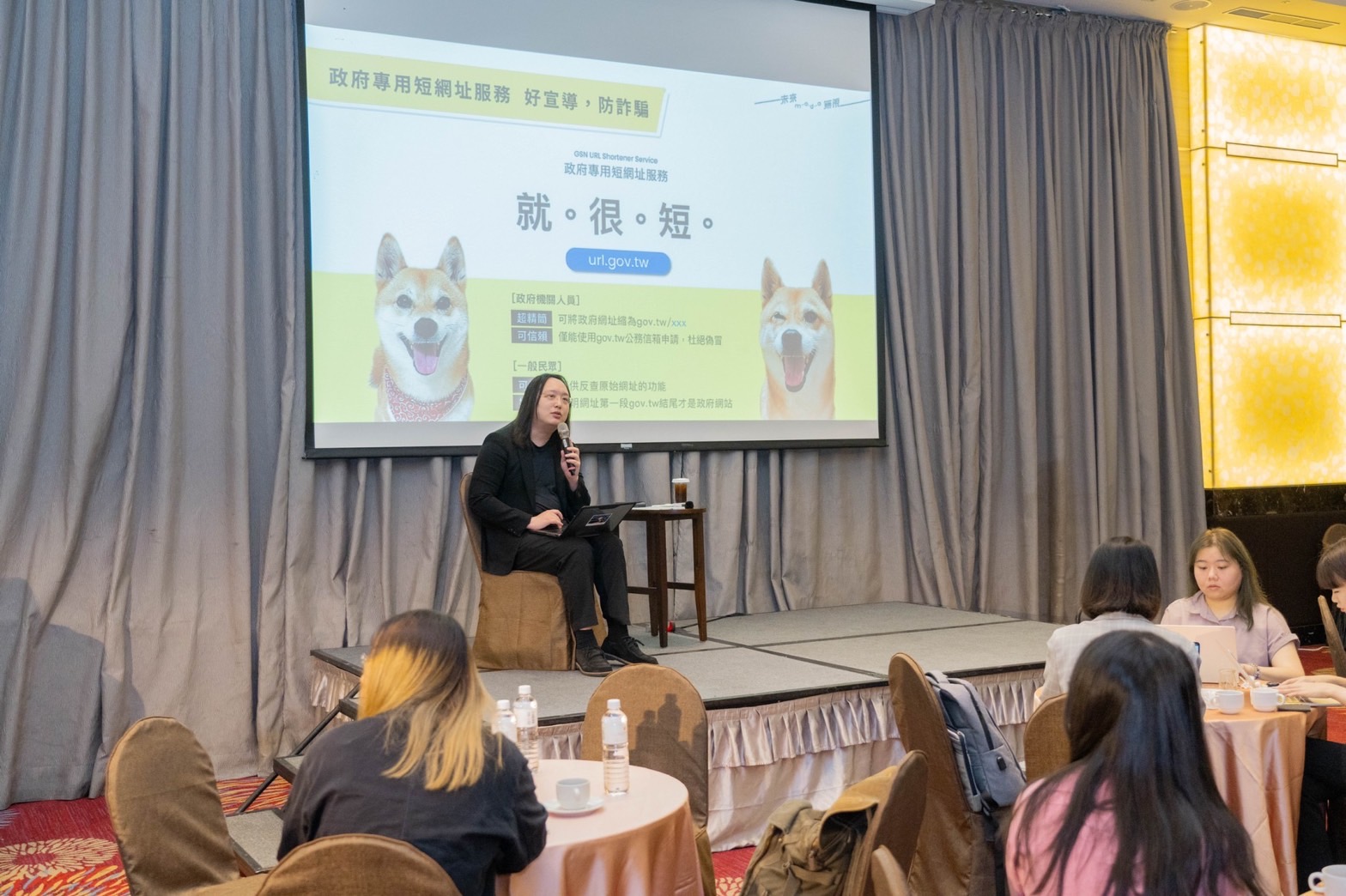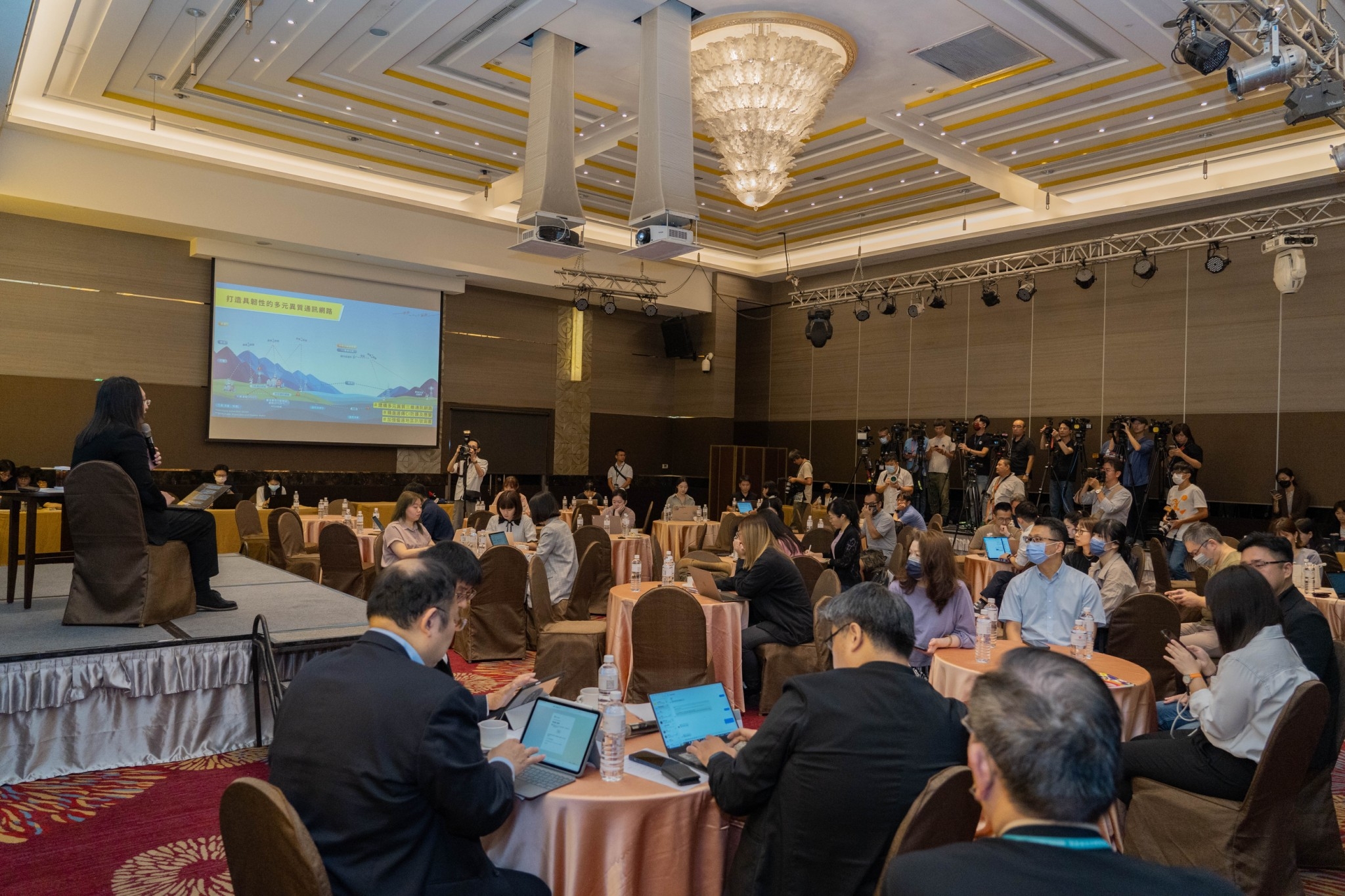Ministry of Digital Affairs will pilot the government SMS short code "111" to enhance digital resilience by preventing fraud at the source in late September
Minister Tang of Digital Affairs stated today (25th) that in order to reduce the risk of the public falling victim to government impersonation SMS scams, the Ministry of Digital Affairs (moda) is planning a dedicated government short code SMS platform. In the future, various government agencies will be able to send SMS messages through the specific and dedicated government short code "111". With a memorable 3-digit code, it will allow the public to recognize that the SMS is indeed sent from the government. The platform is expected to be launched for trial at the end of September 2023, and the moda will actively engage suitable and willing central government agencies to participate.
The moda held a media gathering to elaborate its key policies, progress in governance, and respond to media inquiries today. Attendees included Minister Tang, Deputy Minister Herming Chiueh, Deputy Minister Huai-jen Lee, Deputy Minister Ning Yeh, Deputy Director General of the Administration for Digital Industries Betty Hu, Deputy Director General of the Administration for Cyber Security Chun-yin Lin, and President of the National Institute of Cyber Security Quan-te Ho.
During the meeting, Minister Tang announced that following approval from the Executive Yuan, the government's dedicated short code SMS platform will use the 3-digit "111" as the short code for government agencies to send SMS messages. The moda has coordinated with telecommunications operators to implement checks and controls at the SMS sending end, ensuring that the "111" code only can be sent through this platform both domestically and internationally, and guaranteeing that SMS messages sent to people's phones cannot be impersonated using the code.
Minister Tang pointed out that the moda launched the government's dedicated URL shortening service (https://url.gov.tw/) last year, allowing government agencies to make URLs shorter and easier to remember. This helps government agencies disseminate public information and enables the public to identify government websites more easily, reducing the risk of falling for scams or phishing websites. Through the URL shortening service and the introduction of the government's dedicated short code SMS "111" , government messages will be secured from easy misuse. It will also help prevent fraud from the source and enhance digital resilience in society.
Regarding promoting industrial development and digital transformation, Minister Tang mentioned that given the continuous growth of internet-based services such as remote work, video conferencing, and digital entertainment, the moda has referred to the planning methods and technical specifications of various countries (including the United States, Canada, Brazil, South Korea, the United Kingdom, Japan, and the European Union) to open up the 6GHz frequency band for Wi-Fi 6E. After the relevant regulatory orders were approved by the Executive Yuan, Minister Tang signed the document on August 24th. Once the National Communications Commission completes the equipment inspection regulations and procedures for Wi-Fi 6E devices, the public can experience the latest technology.
Minister Tang explained that, unlike the current Wi-Fi operating in the 2.4GHz and 5GHz frequency bands, Wi-Fi 6E adds the ability to use the 6GHz (5945-6425MHz) frequency band, supporting greater bandwidth, faster transmission speeds, and lower latency. Opening up Wi-Fi 6E will promote the development of related industries, such as the establishment of smart factories by businesses, and further improve the public's experience with innovative technologies, such as supporting AR, VR, and wearable entertainment devices.
The moda is actively promoting Private 5G networks and was officially open for applications throughAdministration for Digital Industries,moda in June this year. As of the end of July, they have received over 40 applications. On August 11th, they held their first review conference, approving 7 applications that had completed the preliminary review. The application categories include: Smart Factories (2 cases from Inventec Corporation), Rural Smart Education (Hsin Yeong An Cable TV Co., LTD.), Smart Exhibition (Kaohsiung Exhibition Center), 5G Application Integration Test Lab (Institute for Information Industry), 5G Technology Verification Network Setup (Industrial Technology Research Institute), and 5G Metaverse Professional Functional Training System (joint proposal by Overseas Chinese University of Science and Technology and Industrial Technology Research Institute). The moda will continue to provide more consultation and guidance resources to assist businesses to hold a license in Private 5G networks as soon as possible.
In addition, through the "Innovative Application Diffusion Program for Private 5G Networks ," the moda selected 13 industry associations to form the 5G Vertical Industry Application Special Interest Group at the end of January this year. The covering areas include tourism, cultural exhibitions, daily life, and manufacturing. These associations have proposed a blueprint for Private 5G Networks application services. They are guiding industries to plan innovative Private 5G Networks applications based on this blueprint. On August 16th, the moda announced the selection of 33 benchmark cases, including manufacturing, cultural exhibitions , accommodation, warehousing, entertainment, food safety, etc., covering the northern, central, and southern regions. These cases will put Private 5G Networks innovative applications into operation and collaborate with industry associations to drive growth throughout the industry, promoting transformation and diffusion.
In terms of disaster response and resilience, Minister Tang mentioned that the moda is planning a "Disaster Roaming" verification project to ensure that people can still use mobile communication networks in emergency situations. This allows domestic mobile communication operators to identify each other's customers, enabling people to access the networks of other operators even if their own service is disrupted, facilitating cross-network roaming for communication, getting real-time disaster information, and emergency shelter information.
Minister Tang stated that the moda will also cooperate with the National Fire Agency of MOI to conduct a small-scale "Disaster Roaming" drill during the "National Disaster Prevention Day Large-scale Earthquake Disaster Mobilization Exercise" on September 21st. Additionally, on October 20th, they will collaborate with the National Fire Agency to verify the broadband network services dedicated to police, firefighters, and emergency medical services.
Addressing the recent concerns about communication on Taiping Island, Minister Tang explained that the moda is promoting the proof of concept (PoC) of non-geostationary satellite orbit (NGSO) communication. They will prioritize deploying NGSO communication equipment in outlying islands, remote areas, and regions without heterogeneous communication backup. Taiping Island is one of the priority deployment locations for this PoC case. The moda has planned to support relevant equipment as the backhaul for the Taiping Island base station, aiming to enhance the island's mobile communication bandwidth and capacity.
The moda emphasizes that it will uphold the core concept of using digital tools to strengthen "National Digital Resilience." They will continue to plan national digital development strategies from the perspectives of social development, industrial transformation, emergency response, and actively promote various digital policies.

